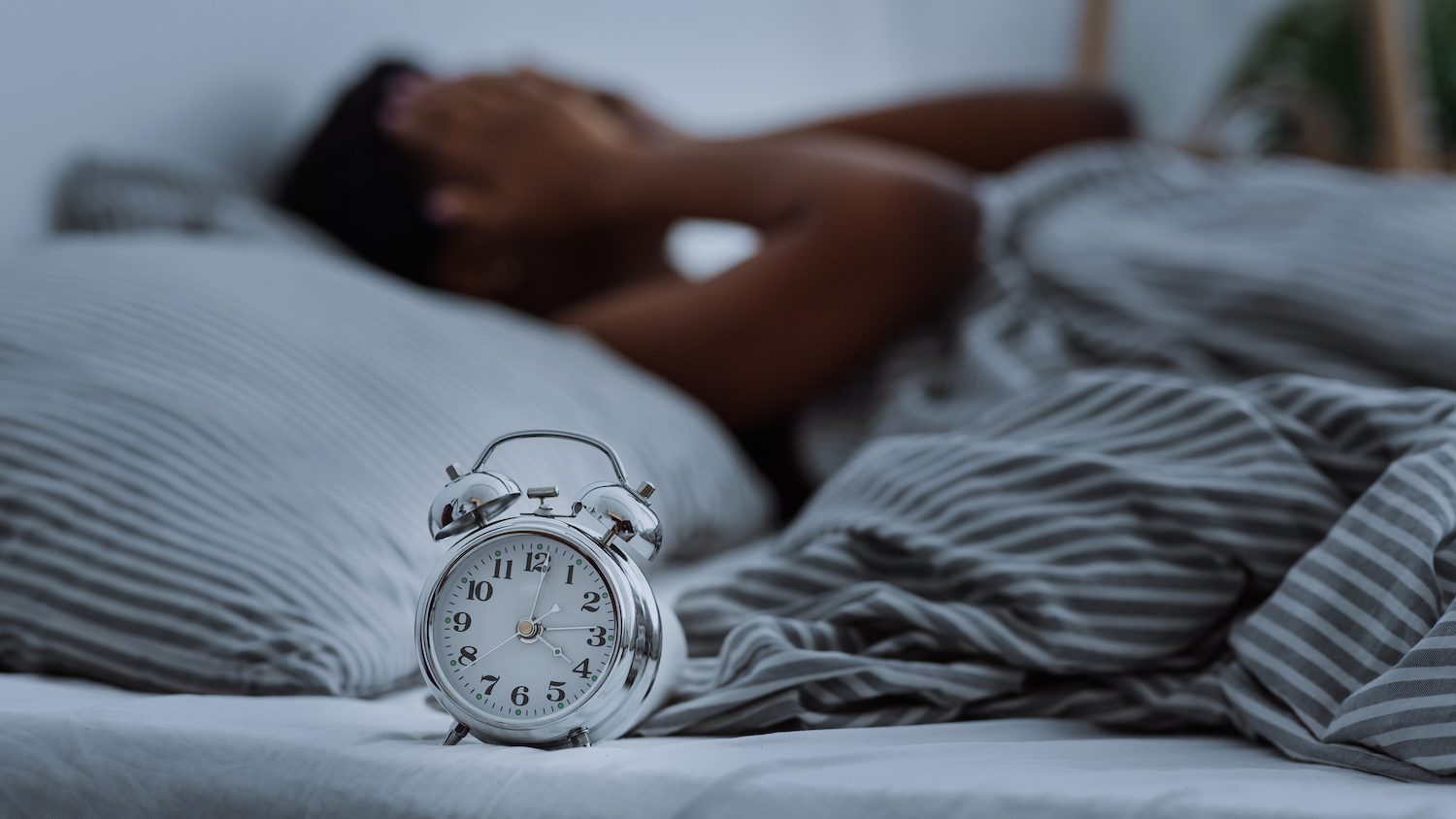If you keep waking up too early in the morning then it means you’re not getting the necessary hours of sleep your body needs for a healthy lifestyle.
Benjamin Franklin once said, “Early to bed and early to rise makes a man healthy, wealthy, and wise.”
But if you’ve been waking up too early for months, you may find yourself feeling unhealthy and your cognitive abilities suffering.
Before jumping to shell out on therapy for insomnia, it might be wise to try and find out the root cause.
After all, there might be a simple explanation for your disrupted sleep patterns.
Check out this article to discover six likely reasons you’re wide awake a couple of hours too early and what to do about these sleep challenges.
6 Reasons You Keep Waking Up Too Early
Oftentimes the reason people are waking up with the birds isn’t because of an underlying medical condition. Usually your sleep cycle gets disrupted due to some sort of behavior or temporary stressor in their lives.
Read on to find out about the common reasons you may have trouble sleeping through the entire night.
#1 – You’re suffering from stress

People with sleep disorders are often suffering from stress and other mental health issues. Constant overthinking can make it hard to get a full night of sleep.
Studies show that people who have a high perceived level of stress — especially family or work-related stress — will sleep for shorter periods of time.
It seems that when people have high workloads, the feelings of this stress causes them to become early risers. The worry about having so much to do wakes you up well before the alarm clock goes off.
This is likely due to the release of cortisol, a hormone that’s released when the body is stressed to alert it to danger. If stress is permeating your sleep, the cortisol increases the chance that you’ll wake up.
This is particularly prevalent in office workers, specialized workers, and those with above mid-high household income. Students who are also under stress tend to wake up in the early morning hours.
But it’s not just daily stresses that can interrupt your cycles of sleep. You might even be stressed about sleepless nights. This leads to sleep performance anxiety, an anxiety disorder where you’re so worried about not falling asleep that you get no actual sleep.
The problem is that getting stressed when you head to sleep at night can ruin your time in bed and cause you to keep waking up too early.
Luckily, there are solutions to the situation.
The most obvious solution is to limit your stress.
Consider looking into some simple relaxation exercises, a mind-body exercise, or breathing techniques before going to bed. This can take your attention away from your worry and help dissolve acute stress.
Cognitive-behavioral therapy (CBT-I) has also been shown to make a huge difference to additional stress, anxiety, and depression in individuals suffering from early morning awakenings.
#2 – You don’t have a consistent sleep routine
Studies show that when you have a consistent sleep schedule on all seven nights of the week, you’re more likely to sleep through the night.
The stages of sleep (non-REM and REM sleep) depend on consistency and regular bedtimes.
Having a consistent sleep time will help your circadian rhythm (your body’s internal clock) remain on schedule.
The best way to keep a consistent circadian sleep schedule is to calm yourself each night with a relaxing bedtime routine.
Wondering what a sleep routine is? It’s simply the activities you perform in the evenings before bedtime.
Think of it this way. If you’re going to bed at different times every night, your body won’t understand when it’s time to fall asleep and wake up.
As a result, you’ll keep waking up too early or too late in the morning.
Practice good sleep habits so your body knows when it’s time for sleep. Keep consistent sleep timing going to bed at the same time every night.
Find a calming activity to soothe your mind. Try a warm bath, light exercise, or meditation. Alternatively, read a book or write in your journal. Whatever you do, pick calming activities into your nighttime routine so your body knows it’s time to wind down and relax for bed.
You’ll also want to make sure your bedroom exudes calmness. Remove all noise disturbances, lower the temperature, and dim the lights.
As sleep expert, Guy Meadows, notes, you should stop all screen time at least an hour before bed to avoid blue light exposure from your device.
Be aware, if you’re working on a much earlier sleep schedule than normal, this may also be responsible for your early morning awakenings.
#3 – You’re having nicotine cravings

Did you know that nicotine plays a role in your quality of sleep?
A recent study indicated that people who use nicotine products experience higher odds of sleep disturbances than those who don’t. Not only that, but people who consumed nicotine also had significantly higher reductions in quality of sleep.
On top of that, smokers tend to wake up earlier as their body wants to satisfy its nicotine craving.
In other words, smokers wake up more often in the night, wake up earlier, and don’t get the same sleep benefits as people who don’t use nicotine.
If you do decide to quit the addiction, be aware that one of the more annoying nicotine withdrawal symptoms is temporary sleep onset insomnia. The keyword here is temporary.
Sleep is just one of many important health benefits of smoking cessation.
The long term health benefits from ditching nicotine products vastly outweigh the temporary struggle.
#4 – You’re pregnant

You may be engaging in all of the recommended proper sleep hygiene practices, but if you’re soon to be parents, it can be especially difficult to avoid morning awakenings and insomnia.
It’s well-documented that sleep plays an essential role in the well-being of a pregnant mother and her baby.
Unfortunately, women who are expecting a baby are also at risk for sleep difficulties. Here’s some of the symptoms of pregnancy that make it difficult to get 7-9 hours every night:
- Frequent need to go to the bathroom
- Morning headaches
- Morning sickness
- Pregnancy heartburn
- Leg cramps and restless leg syndrome
- Vivid or disturbing dreams
- Difficulty getting and remaining comfortable with a growing belly
- Kicking from an active child
- Pre-birth anxiety and depression
If you suspect (or know) that you’re pregnant, standard sleep hygiene may not be enough.
You should consult your doctor for some help and guidance to be sure you’re doing everything within your power to drift off into deep sleep.
#5 – You have circadian rhythm disorder
Circadian rhythm disorder is a broad term describing several sleep disorders that all share the same aspects of sleep disruptions.
Symptoms include:
- Trouble falling asleep at normal bedtimes
- Trouble staying asleep with frequent awakenings in the middle of the night
- Early morning awakenings with difficulties falling back asleep
Your circadian rhythm is your body’s 24-hour clock that controls your biological rhythms. This internal clock regulates your body’s sleep-wake cycle.
Exposure to light in a 24-hour period is the primary means of setting your internal clock. Frequency, type (brightness), and time of exposure all influence your circadian rhythm.
When you’re exposed to light, your retinas transmit a message to your brain which triggers a biological response.
For example, when the sun goes down and your exposure to light is reduced, your body responds by producing a sleep hormone called melatonin.
Adults who suffer from a circadian rhythm disorder may not be producing enough melatonin, among other reasons.
Circadian rhythm disorders can be spurred on by any number of causes including:
- Jet Lag
- Blindness
- Brain Injury
- Frequent changes in work shifts
- Poor sleep habits
- Pharmaceutical sleep medications
There are various treatments that can help. Options typically include bright light therapy, medications, and behavioral therapy (CBT-I).
#6 – You’re simply getting older
There’s a reason why “sleeping like a baby” is one of the most popular idioms for sleep. It’s because babies sleep better than old people.
Sleep deprivation is very common among older adults.
In fact, roughly 50% of adults (age 60+) report sleep problems including sleep disruptions, difficulty falling asleep, or overall dissatisfaction with the quality and quantity of sleep.
Some sleep experts argue that declining sleep quality is not a given for older people — it’s circumstantial.
For example, older people with depression, elevated stress, or increased anxiety from their lifetime may experience chronic insomnia.
That said, age-related and hormonal shifts associated with aging will reduce sleep duration so you keep waking up too early.
Also, as you get older your energy levels decrease, resulting in daytime napping.
If you’re taking too many afternoon naps your circadian rhythm will get out of sync, affecting your ability to fall asleep in the evening. It can also cause Sleep Phase Disorder, an issue where you find it so hard to fall asleep that you can’t wake up at the right time.
But it’s not just senior citizens who have age-related sleep issues.
Harvard Health Online also notes that people approaching the middle of life may experience swing shifts in their sleep, losing the ability to sleep in late.
This is because midlife brings its own set of stress and discomforts, such as older kids leaving the family house, menopause, family deaths, and age-related pain.
To sleep better at night, try to stay active throughout the day. This will help to reduce stress, anxiety, and depression and improve your overall quality of life.
To Sum It Up
If you keep waking up too early, you may find you’re exhausted by the end of the day. The likelihood is that something’s affecting your sleep quality, shortening your sleep duration.
Ask yourself what stresses you’ve been under and try to make lifestyle and environment changes that nurture a relaxing bedtime routine. Unfortunately, if you’re older or pregnant, you might just have to accept these bodily changes and enjoy an earlier bedtime instead.
If you need more help figuring out why you’re having problems at wake-up time and what to do about it, check out more of our helpful guides.

Welcome to Snoozerville! I’m Dr. Alex Hartley, your guide to the world of restful sleep. With a Ph.D. in Sleep Science and years of experience as a sleep therapist, I’ve dedicated my life to understanding and improving sleep quality. My passion lies in uncovering the mysteries of sleep and sharing practical, science-backed advice to help you achieve the best rest possible. Beyond my academic pursuits, I’m an advocate for mindfulness and relaxation techniques, which I incorporate into my daily routine. At Snoozerville, I aim to transform your nights, combining the latest research with easy-to-implement tips. Whether you’re a chronic insomniac or just looking to improve your sleep hygiene, join me on this journey towards peaceful, rejuvenating sleep.

